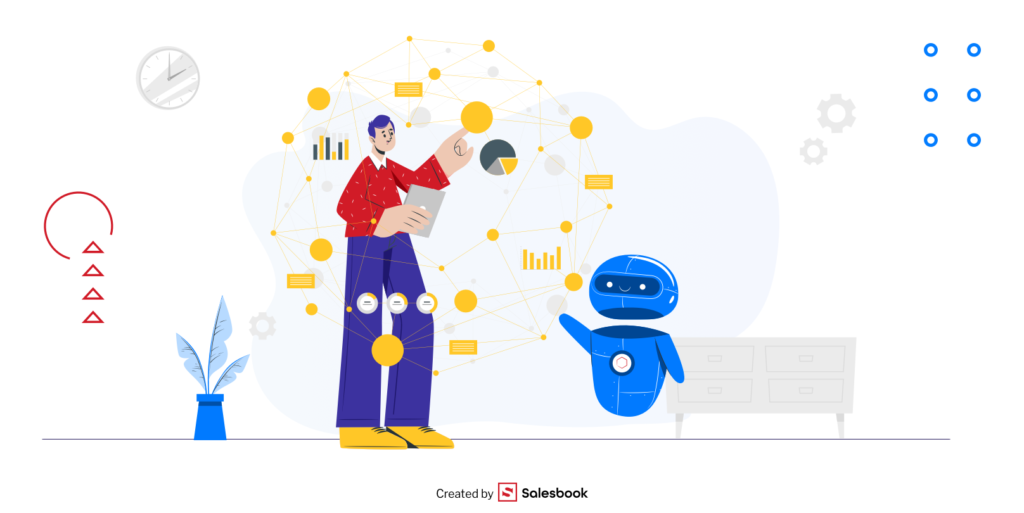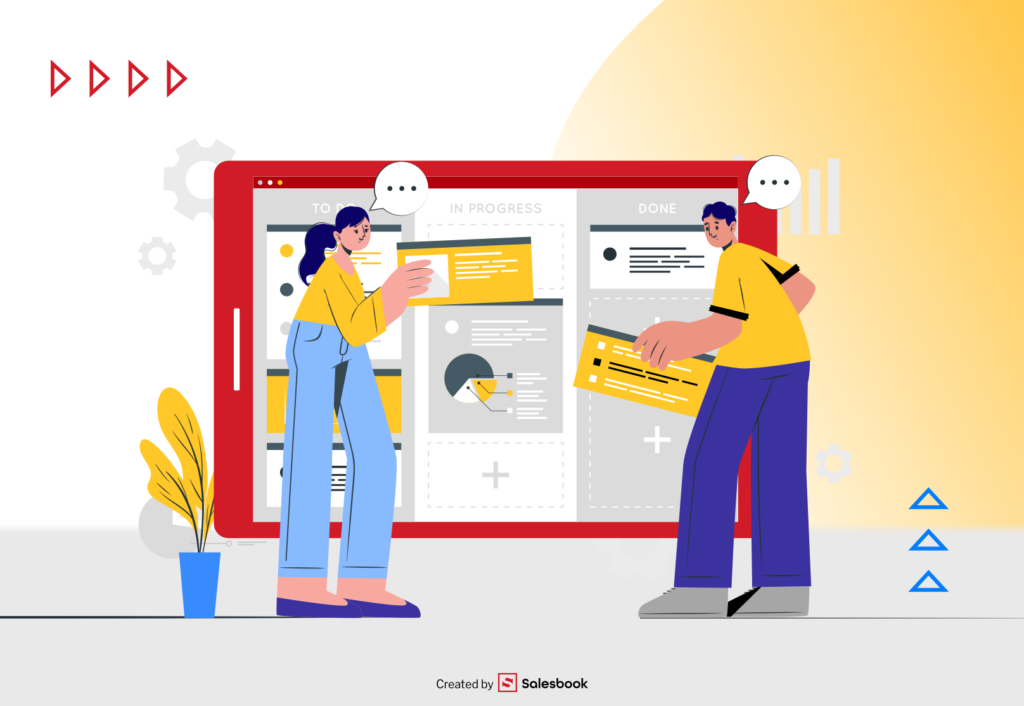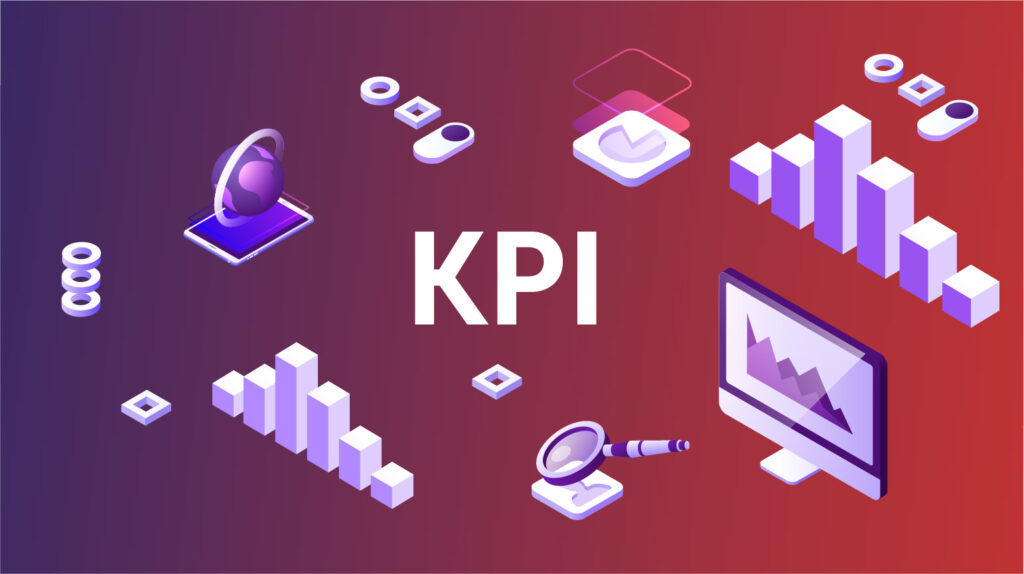What is CRM system?
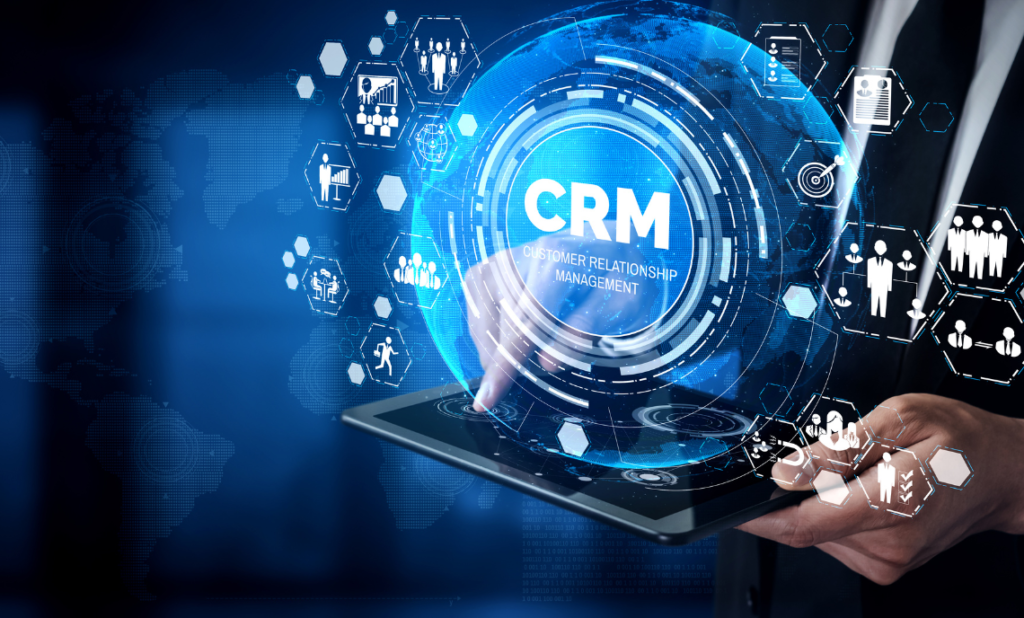
In business, the acronym CRM (Customer Relationship Management) is used in many different ways. For some salespeople, a CRM system is simply a contact list. Others use the full spectrum of capabilities of such software, i.e. sales automation, lead scoring or region management. So what exactly is a CRM system? And what are its key features and capabilities? Let’s take a closer look.
What is CRM system?
CRM is an important tool in the landscape of building business relationships with customers. It stands for Customer Relationship Management and can refer to both the processes that companies use to track customer information and the software that helps streamline such activities.
With CRM, companies have access to valuable customer data, ranging from basic contact information such as name and address to more complex customer profiles such as purchase history and preferences.
Using this type of software makes this data easily managed and accessible at any time. It gives companies instant insight into what their customers need and want.
A CRM system is an indispensable tool that will also help analyse the reasons for lost sales opportunities and the flow of information within a company.
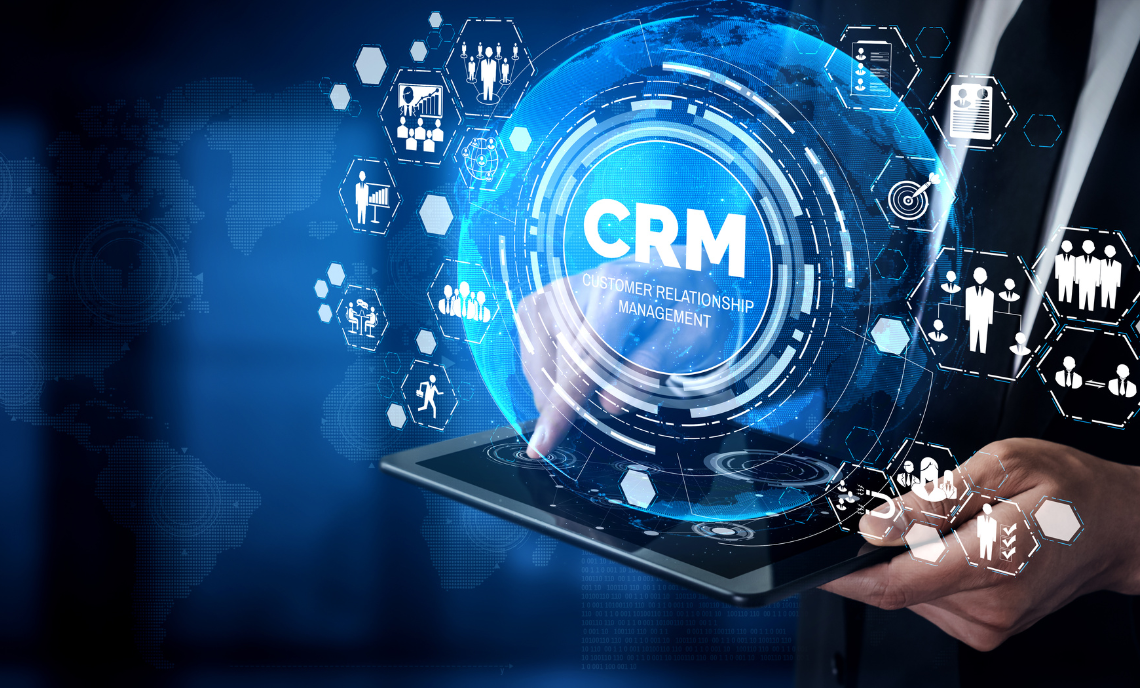
What is CRM system used for?
CRM tools make it easier to manage customer and prospect data. Result: employees have more time to focus on the sales process.
System can help to improve communication between customers and employees. It can also enable the tracking of relevant customer information such as addresses, emails, payment and call history.
CRM software also offers useful features attributed to this type of tool, such as automatic reminders, reports and charts. All of these CRM functionalities help companies to increase productivity by giving them insight into how the purchasing process is going in a sales funnel. You can also check how the chosen sales strategy is performing.

In what areas does CRM system help a company?
A CRM system can help a company in several areas. Learn about its main functions and the advantages of working on a CRM tool.
Sales management
A CRM programme enables the collection of customer data, such as contact history, purchase preferences or order history. This allows salespeople to better understand their customers’ needs and tailor their offers to them.
The platform also allows them to track the progress of the sales cycle. From the first contact with the customer to the finalisation of the transaction.
The CRM will also help automate certain processes, such as sending offers or generating sales reports. This will save salespeople time and increase their efficiency.
A study by Salesforce found that companies using a CRM have 29% more accurate sales forecasts.
Marketing
CRM enables the collection and analysis of customer data, such as preferences, purchase history or demographic information. It also provides automation of certain marketing activities. You can automate sending emails or text messages, creating advertising campaigns or running social media.
Another unquestionable advantage of the system is that it enables the identification of potential customers and the generation of leads. I.e. contacts who may be interested in the company’s offer. This makes it possible to effectively acquire new customers and increase sales.
A study by the Aberdeen Group found that companies using marketing automation in CRM saw a 451% increase in the number of qualified sales leads.
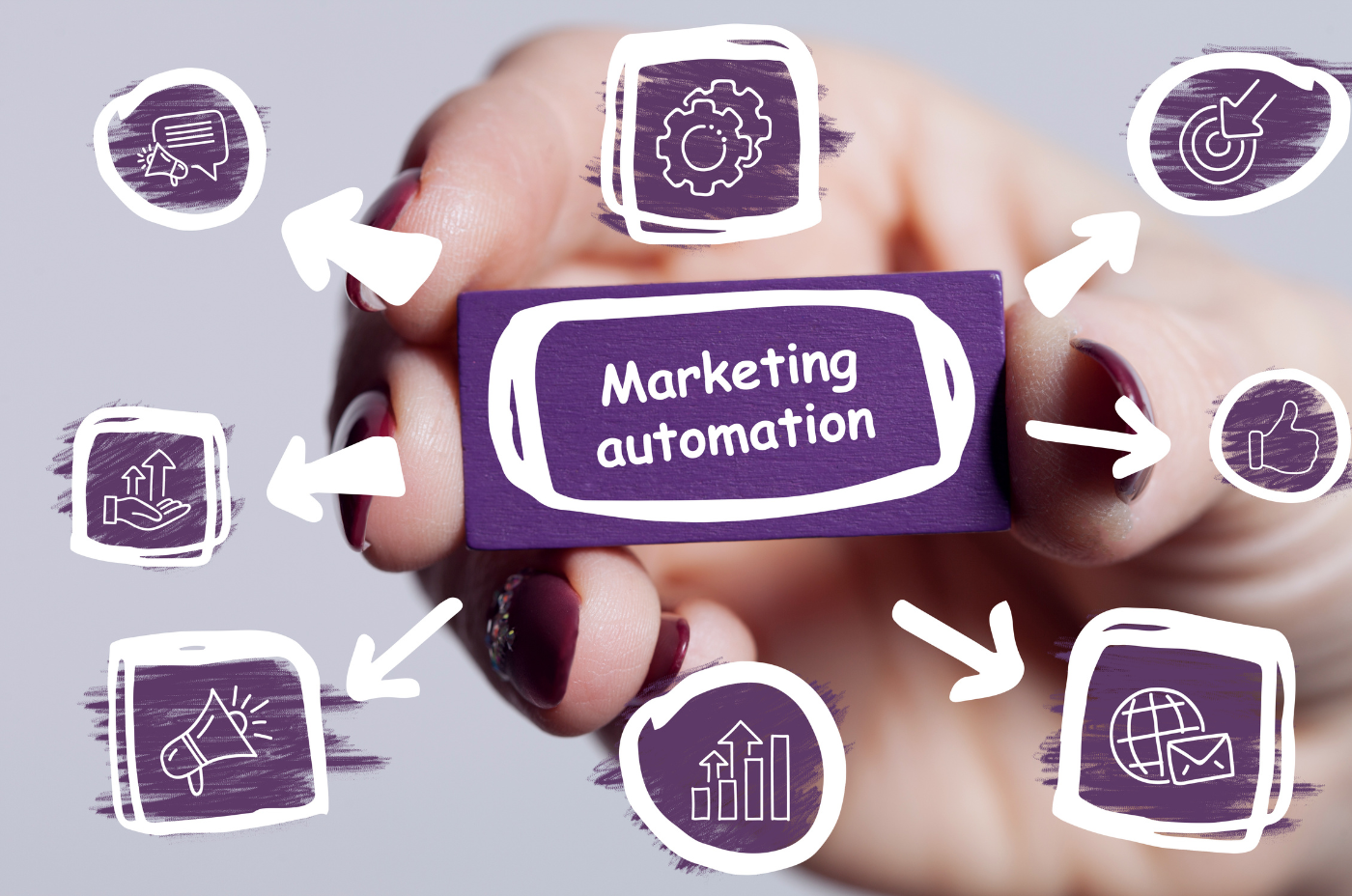
Customer service
The CRM programme helps customer service by centralising contractor data and facilitating communication between different teams within the company. It gives helpdesk or customer service teams access to the full history of customer interactions. You can check queries, complaints or purchase history.
This enables more efficient and effective service, increasing customer satisfaction and improving loyalty. CRM also allows the automation of certain activities, such as responding to enquiries or managing complaints.
A study by Nucleus Research shows that companies using CRM for customer service report a 42% reduction in the cost of such service.
Business intelligence
Business Intelligence is the process of capturing, analysing and presenting business CRM data to provide information to support business decisions.
This approach enables companies to better understand their operations, business processes and customers. This will lead to improve efficiency, increase competitiveness and achieve better business results. And this is where the ideal place for a CRM system comes in.
Working on a CRM system can help to analyse data in a number of ways. First and foremost, it enables the collection of information about customers, including their preferences, purchase history, interactions with the company, etc.
It also allows you to analyse sales and marketing data, such as sales rates, marketing campaigns or customer acquisition costs.
With the functions of CRM systems, you will also look at customer service data, such as response times, quality of service, the type of problems customers have, etc. In this way, you will better understand what affects customer satisfaction and how it can be improved.
Confirmation of the effectiveness of CRM systems in this regard comes from a study by the Aberdeen Group, which found that companies using CRM have a 9.5% higher customer retention rate.
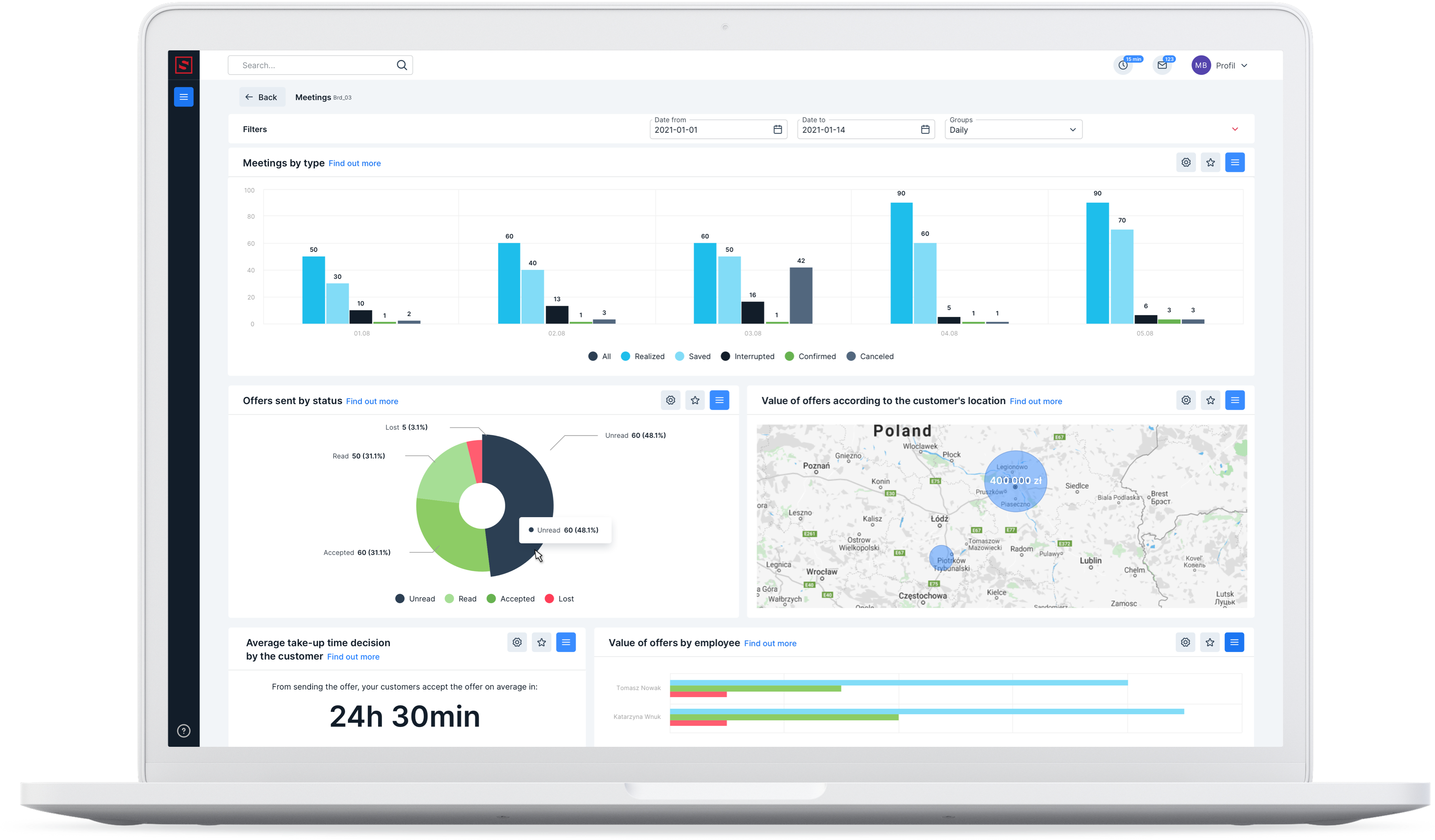
Data management
The main function of CRM systems is also to create a centralised place to store customer data. This is the most common use of this type of tool.
This function allows decision-makers to manage effectively and employees in direct contact with customers to analyse customer information and work on hard detailed data.
Collaboration
CRM enables the coordination of activities between different teams, such as the sales, marketing or customer service team.
This allows better use of resources and ensures a consistent approach to customers and short response times, which in today’s sales world is one of the most important factors for customer satisfaction and retention.

Mobile access
CRM software also allows for mobile access to data, giving employees flexible access to and contact management of customer information and sales activities via their mobile devices.
In practice, this means that they can respond to customer needs in real time, even when they are not in the office, as all collected customer data is always at hand on the salesperson’s smartphone.
A study by Nucleus Research found that implementing mobile CRM can lead to an average increase in employee productivity of 14.6%.
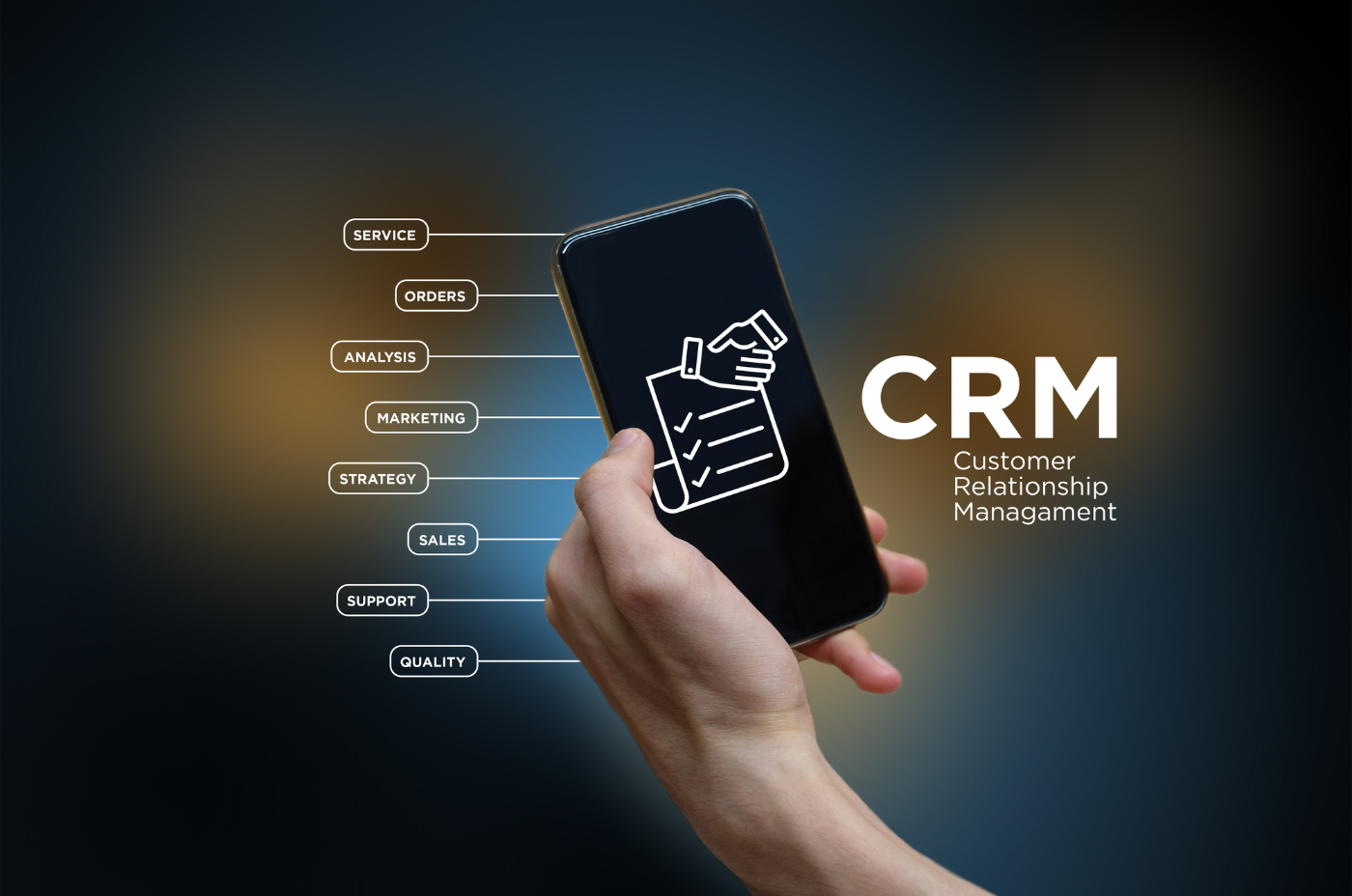
Benefits of implementing CRM system
A CRM programme is an effective tool that can help companies of any size and in any industry to manage and develop customer relationships and increase sales.
However, this is only a small part of the benefits of implementing a CRM in a company. What else will you achieve by implementing CRM?
Increased productivity
CRM software can automate repetitive tasks and streamline the sales process, allowing employees to focus on more important activities and increasing their productivity.
A study by Gartner found that using a CRM can save businesses up to 14.5 hours per week per salesperson. This is because CRM platform provide a centralised place to store customer data and automate repetitive tasks such as sending follow-up emails, scheduling meetings and tracking sales progress.
This can help staff to manage and track leads, customer interactions and sales progress more effectively, allowing them to focus on more important activities such as closing deals.
Additionally, CRMs offer a sales funnel function that allows staff to track and manage leads as they move through the funnel, providing real-time insight into each status and allowing sales teams to prioritise their activities and focus on the most promising leads.

Better organisation
A CRM provides a centralised place to store customer data, allowing employees to manage and analyse information more effectively.
Additionally, CRM programmes can provide features such as calendar, task and contact management, which can help employees better manage their schedules and stay on top of important tasks.
Improved communication
CRM often provides employees with a centralised platform to share information and collaborate with each other, improving team communication and coordination.
This can help eliminate information bottlenecks and ensure that all team members are working on the same data and towards the same goals.

Informed decision-making
CRM provides real-time data insights and analysis of customer behaviour and sales performance, allowing employees and managers to make more informed decisions.
With complete insight into customer interactions, sales data and marketing performance, managers can optimise their strategies.
Additionally, a good CRM often offers features such as reporting and analytics that can help managers identify patterns and trends in customer behaviour and sales performance, enabling them to make more informed decisions.
Higher-level customer service
A good system can provide staff with a complete view of customer interactions and history, enabling them to provide more personalised and relevant responses to enquiries. This is an excellent first step towards a high level of customer experience.
The CRM system also supports the work of the helpdesk. It allows employees to see whether errors and reported problems are a recurring situation. On this basis, managers can develop appropriate repair plans or report recurring faults to the technical department.
The professional and efficient handling of technical queries and problems reported by customers is of paramount importance for brand image and, consequently, customer loyalty.

Increased revenues
CRM can increase revenue in a company by improving processes, better understanding customer needs, personalising offers and maintaining long-term customer relationships.
According to the Salesforce State of Sales 2020 report, companies using advanced CRM tools increased their sales revenue by 15 per cent compared to companies that do not use such tools.
CRM also supports salespeople in identifying cross-selling and add-on sales opportunities by analysing customer behaviour and purchase history.
According to an Aberdeen Group study, companies using CRM increased their revenue from cross-selling and add-on sales by 32%.

For who is it designed for?
CRM is designed for different types of companies and organisations that want to better manage their customer relationships. Its target audience is primarily individuals and departments responsible for customer service, sales, marketing and contact management.
Companies that can benefit from CRM include:
- B2B companies – CRM allows you to keep track of business customer contacts, manage project and order data and build lasting relationships.
- B2C companies – CRM allows you to collect data on individual customers, analyse their behaviour and needs and personalise your offering. For example, an e-commerce company can use CRM to analyse customer behaviour, such as purchase preferences, and tailor offers to meet their needs.
- Not-for-profit organisations – CRM enables not-for-profit organisations to track donor interactions, build donor relationships and plan fundraising activities.

Will employees benefit from implementing CRM?
Implementing a CRM system can bring tangible benefits to employees in several areas of work, such as:
Productivity
A CRM will help effectively automate repetitive tasks and streamline the sales process, allowing employees to focus on more important activities and directly impacting their productivity.
Filling in Excel files, which used to consume dozens of hours a month, will now be able to be spent by employees on more strategically important activities.
Organisation
CRM can help employees track leads, customer interactions and sales progress, allowing them to better manage their work and stay organised. The chaos in teams that do not use CRM tools swims negatively on their engagement, and this translates directly into the company’s bottom line.
Communication
CRM provides a centralised platform for employees to share information and collaborate with each other, improving team communication and coordination. No more exchanging hundreds of emails and unnecessary phone calls.
A CRM will keep your company’s communication at the highest level and save time.

Decision-making
CRM provides real-time data insights and analytics on customer behaviour and sales performance, allowing employees and managers to make more informed decisions.
Engagement
With better data management and easier access to information, employees can better understand existing and prospective customers needs and adapt their work to meet those needs.
As a result, employees are more aware of their role in the customer service process, which can directly translate into increased work engagement.
Job satisfaction
The right tools that support employees are essential to maintaining high levels of employee satisfaction and lowering turnover rates within the company.
Working on tools that support and relieve the employee of tedious and repetitive tasks will allow them to spend more time on creative work or process improvement, and this will have a huge impact on their sense of job satisfaction.
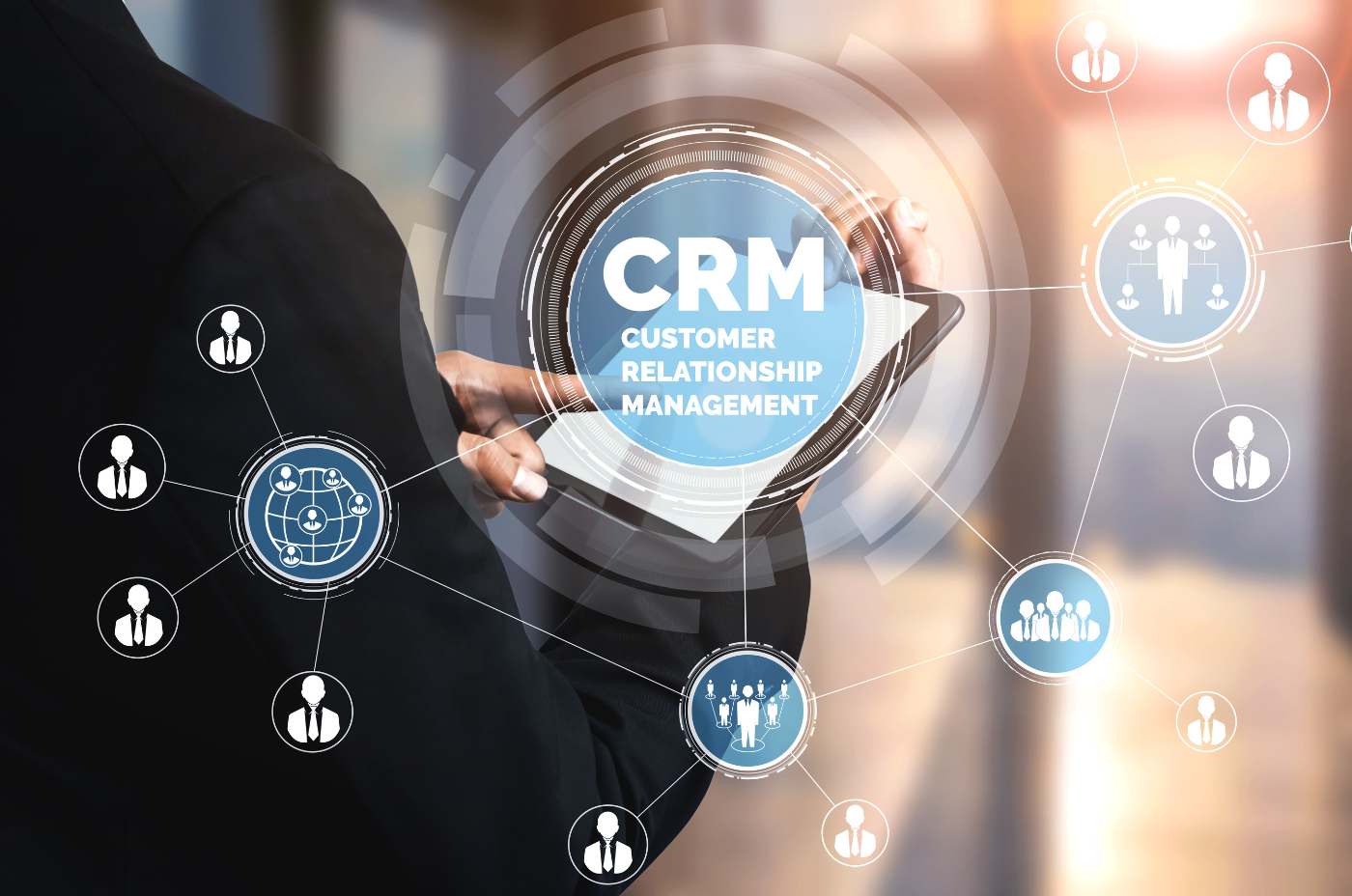
Statistics show that implementing a CRM can increase employee productivity by 34%, while reducing labour costs by 27% (source: Nucleus Research). In addition, more than half of companies that have implemented a CRM system have noticed an improvement in customer satisfaction (source: SuperOffice).
Will your customers notice that your company has implemented CRM system?
It all depends on how the company implements the CRM and what specific features it uses. If it uses CRM to improve customer service and communication, customers may notice an improvement in the quality and timeliness of the service they receive within the first week of implementation.
For example, if a company uses CRM to track customer interactions and preferences, it may be able to provide more personalised and relevant responses to both regular and new customers. Such a difference the customer will certainly notice immediately.
On the other hand, if system is mainly used for internal processes such as sales tracking and forecasting, customers may not notice a direct impact on their experience. However, they may still benefit indirectly from the company’s improved productivity and efficiency.

It is worth noting that some CRM-s also offer customer-facing portals that allow customers to access their own information and interact directly with the company. In that case customers will be able to see the CRM implementation and see for themselves how it will affect their contact and collaboration with the company.
Overall, a well-implemented system can ultimately improve the customer experience and quality of service. Even if the benefits of the system implementation are not visible to the naked eye. Increased productivity, faster response times to requests, personalised offers – these will all have a huge impact on high satisfaction levels.
Running a company without CRM software can be a costly mistake
You will probably think: “There used to be no CRMs and business grew.” Right. But let’s not forget that we live in an age where the business card and pen as a sales reps gadget have long since ceased to sell.
Customers have become aware. They have access to the internet and therefore unlimited information about your company, but also your competitors.
The lack of a CRM system can lead to inefficiency in customer relationship management. Without a CRM, salespeople may find it difficult to track leads and customer interactions, resulting in missed sales opportunities.
According to a report done by Nucleus Research, it is clear that adopting a CRM can lead to an average increase in productivity of 14.6%. In addition, managers may struggle to get a clear picture of the sales team’s performance and make data-driven decisions. In contrast, a study by Salesforce shows that companies using CRM have 29% more accurate sales forecasts.
What’s more, a CRM allows companies to automate many manual customer relationship management tasks. For example sending follow-up emails, scheduling meetings and tracking sales progress.
Performing such tasks manually often leads to errors and inconsistencies that can further damage customer relationships.
Conclusion
According to research by Gartner, using a CRM can save companies up to 14.5 hours per week per salesperson.

In short, a lack of CRM can result in a lack of organisation and efficiency in customer relationship management. It turns into missed sales opportunities and a lack of insight into customer behaviour and buying patterns. All of this can ultimately cost a company real money.

Choose the right CRM system for your company, taking into account your needs and budget
Choosing the right CRM platform for your business is crucial. Especially to maximising the efficiency and effectiveness of your sales and customer management processes. It is important to consider your specific needs and budget when making your selection.
The first step is to assess your current sales process. Second, to identify areas where a CRM tools could improve efficiency and productivity. Consider the size of your team and their specific needs, such as mobile access or integration with other tools.
Then determine your budget and explore different options that suit your needs and budget. Some CRM-s have a one-off purchase cost, while others have a subscription-based pricing model.
Take note of all costs that come with the CRM, including any additional costs for features, integrations and support.
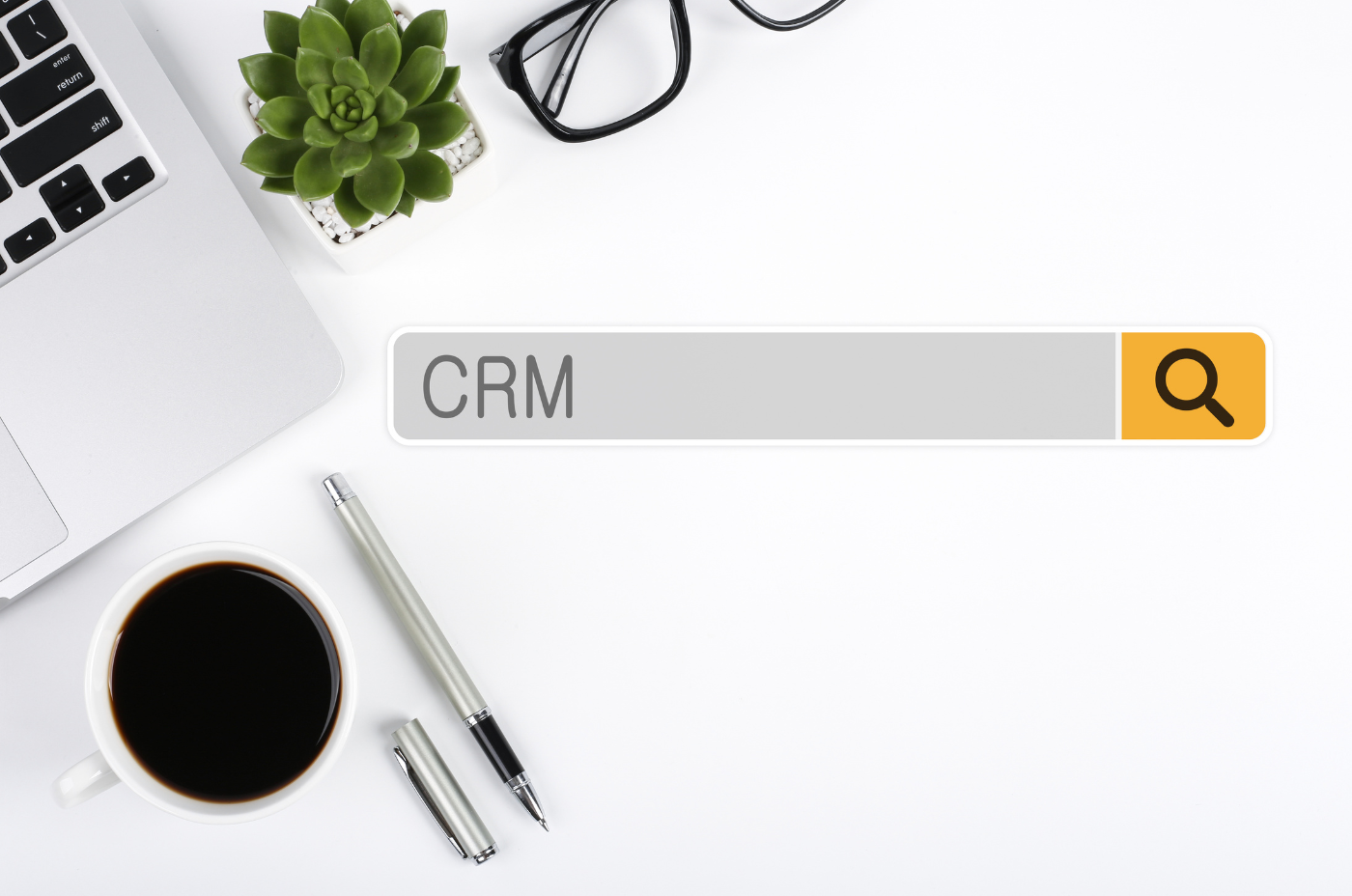
Once you have narrowed down your options, it is important to try a few different CRMs before making a final decision.
Many providers offer free trials or demos, so take advantage of these to familiarise yourself with the user interface, features and general functionality of the software. Remember to ask for testimonials and customer reviews before you buy.
Ultimately, the right software for your business is one that fits your specific needs, budget and is easy for your team to use.
By taking the time to carefully evaluate your options, you can ensure that you choose a system that will help your business grow and succeed.
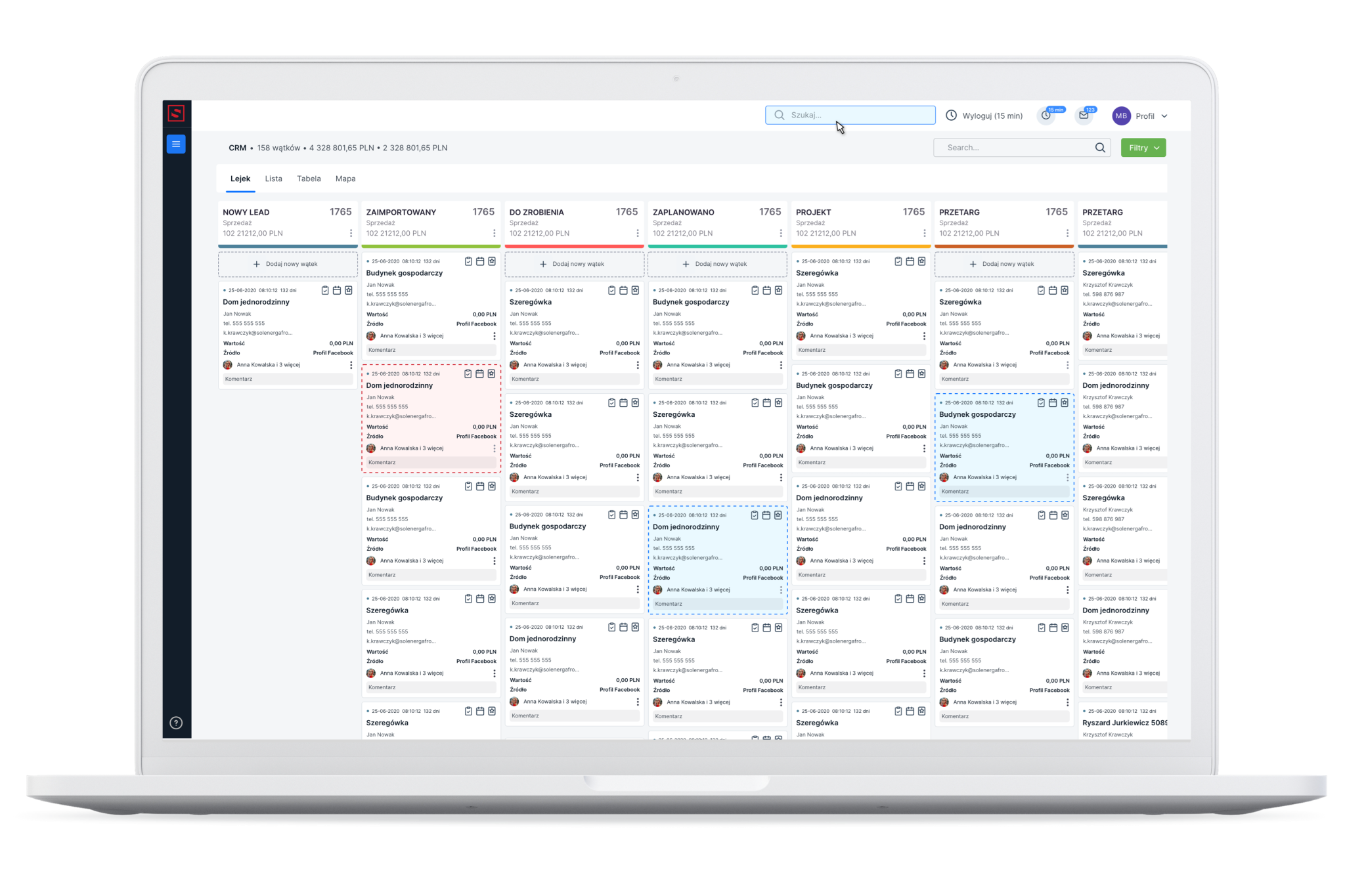
Salesbook CRM: a salesperson’s and manager’s best friend
Salesbook is a sales management tool that is designed to help salespeople and managers streamline their sales pipeline and increase their productivity.
It offers many features. Lead management, sales force automation, customer relationship management – all, to help salespeople organise and track their sales activities.
See what latest features we have added to our CRM system (click here).
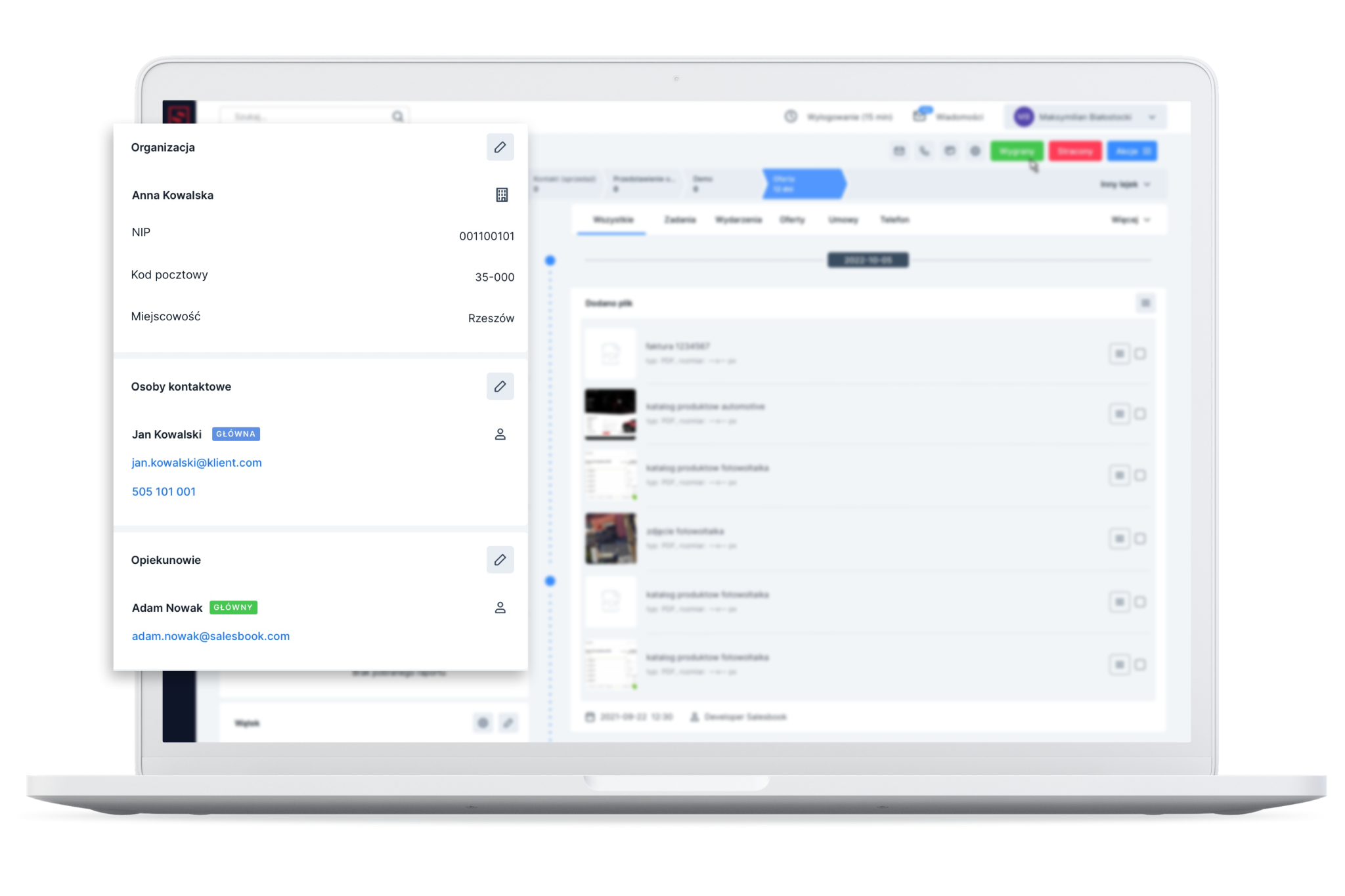
In addition, the tool from Salesbook provides real-time data insights and analytics. That help managers monitor sales teams performance and make data-driven decisions.
With its user-friendly interface and seamless integration with other business tools, Salesbook CRM is a valuable asset for any sales teams looking to increase their productivity and achieve success.
At Salesbook, we know all too well the importance of system flexibility and accurate sales analytics. As well as the convenience of your sales team.
Do you want to earn more with reliable processes and conduct comprehensive analysis of your sales activities? Be sure to try out the demo version of our system. Test for free the additional functionality of Salesbook that will help your company get to the next level in sales.
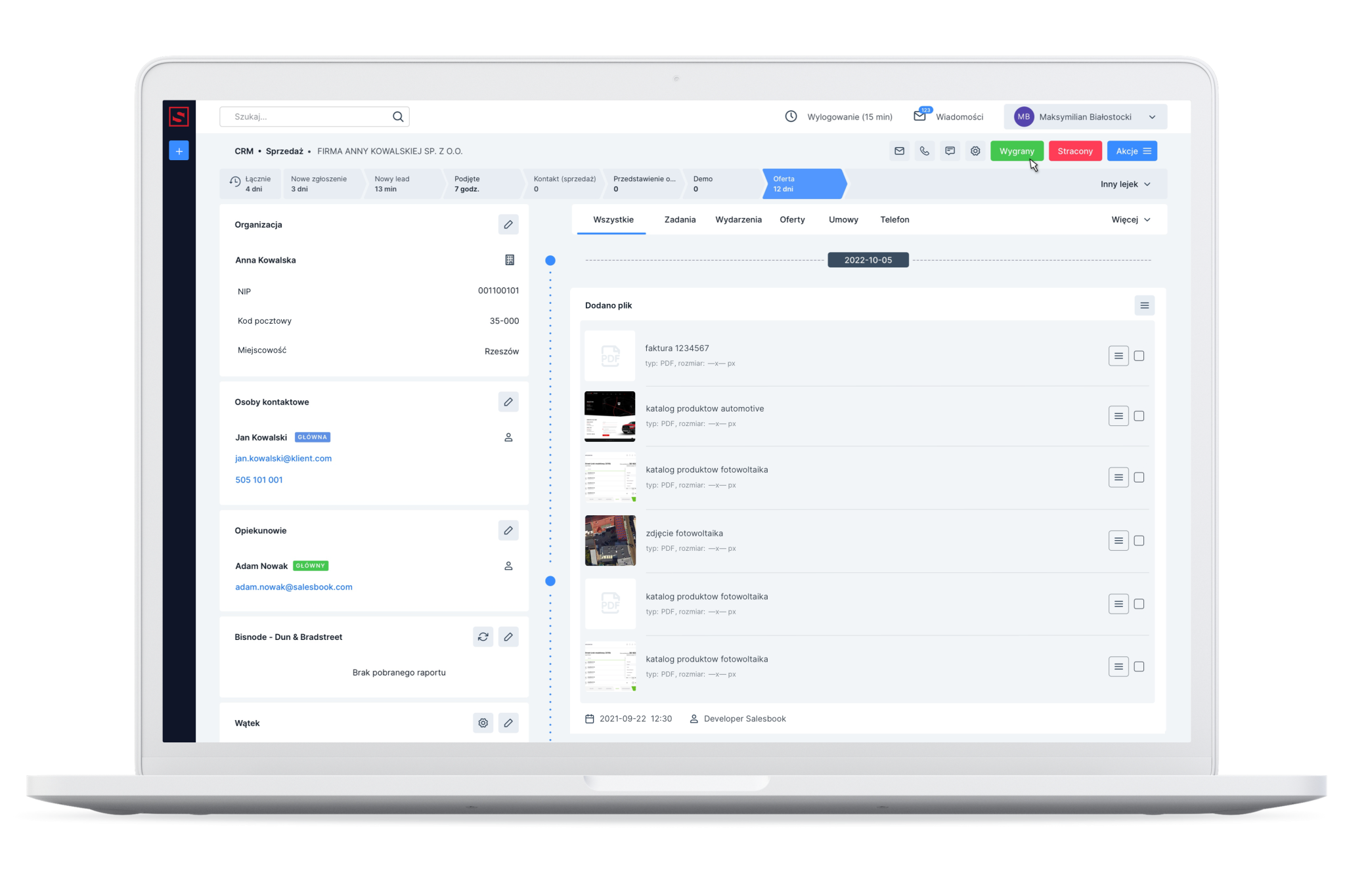
Benefits of implementing Salesbook CRM system
1. Sales process monitoring. Analyse your sales team’s activities in real time and support your salespeople in optimising processes and making accurate decisions.
2. Sales call analysis. Find out the sales secrets of your most successful salespeople and implement them across the team.
3. Analyse meeting effectiveness. Find out what elements of a sales meeting generate the highest interest among customers and reinforce the process.
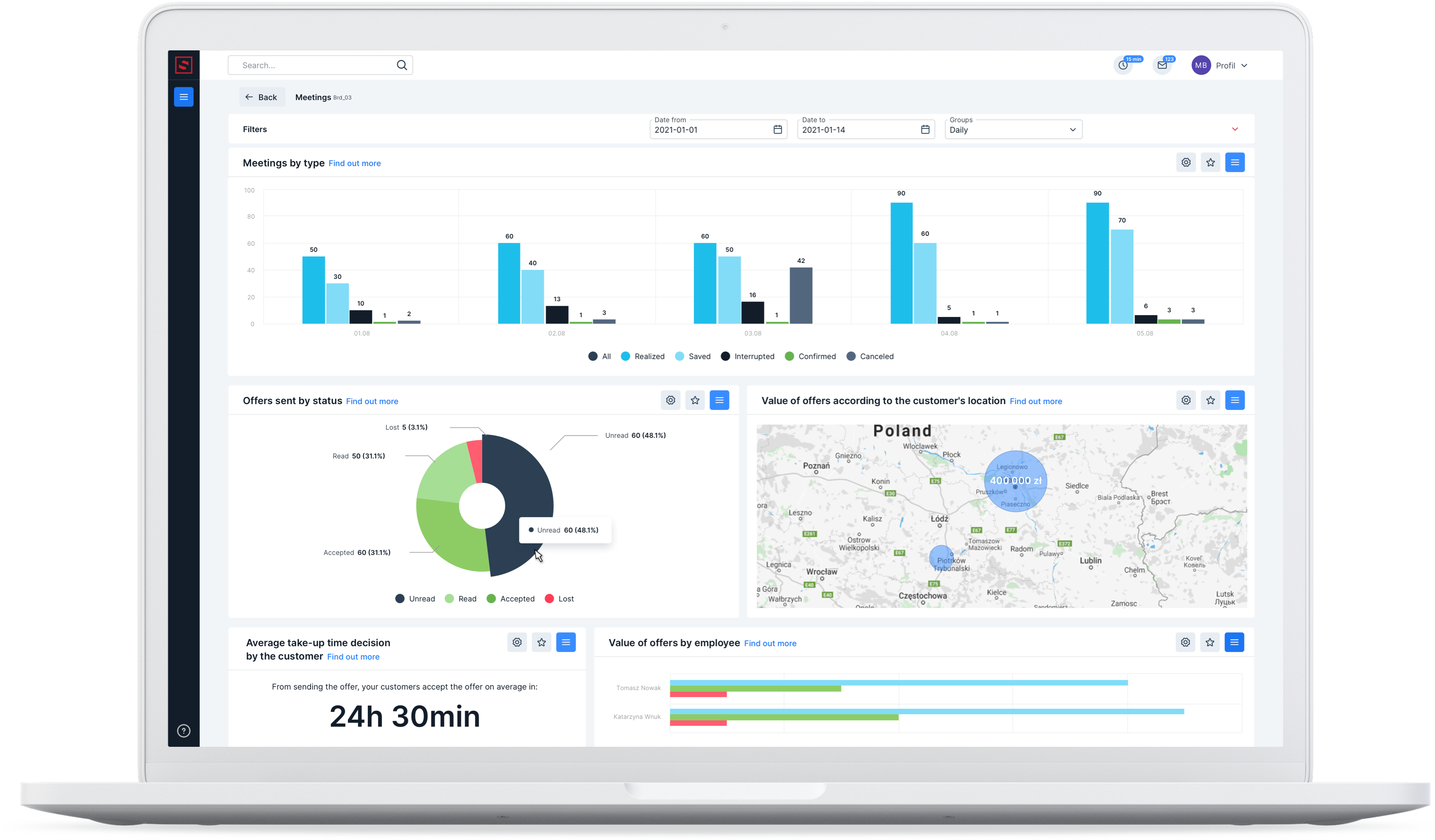
4. Diagnose anomalies. Detect the weakest elements of the process and implement appropriate corrective plans and modifications.
5. Visualise sales data. Analyse qualitative and quantitative sales data presented in a clear and accessible way.
6. Integrate data from multiple platforms. Record captured sales data in a single tool.
Sign up for a free demo of Salesbook
Do you dream of a reliable CRM system and want to make customer relationship management automated and simple? Schedule a free demo with our specialist.
Table of Contents


